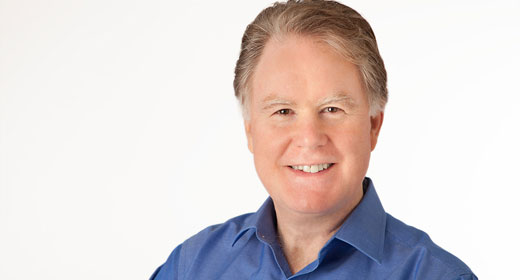by Barbara Markway Ph.D: Hope will always be our necessary partner…

Most of the scientific literature about treating anxiety and depression is rooted in either a cognitive-behavioral perspective or a pharmacological one. Despite many advances, sometimes these methods are not enough. A certain percentage of men and women will not benefit from CBT, medication, or a combination of the two. Even those who do make progress with one of the standard treatments still stand a good chance of relapse.
Author of The Anxiety & Phobia Workbook and Healing Fear, Edmund Bourne describes four specific ways spirituality can help in the recovery process:
1. You feel more hopeful.
Some type of spiritual framework, a belief in some order or power greater than ourselves, can help us maintain hope even when the road is long. Through faith in something, we are able to hold strong to the belief that positive change can occur; it’s not just wishful thinking.
Psychiatrist Thomas Oxman and his colleagues at Dartmouth Medical School studied 232 patients over age 55 who were undergoing cardiac surgery. They found the patients who gained strength and comfort from their religion—they, in essence, had hope—survived longer after the surgery than those without hope.
One of the most important things I try to do in my first session with new clients is to offer hope. People need the expectation that their lives can be better. Otherwise, what incentive is there to follow through with the necessary and often difficult work ahead? I also routinely tell new clients that different things work for different people, and that I’m committed to doing what works for them. If one approach doesn’t work, we’ll find another one.
William Shakespeare wrote, “The miserable have no other medicine, but only hope.” Fortunately, in our day and age we do have medicine as well as psychological treatments. But hope will always be our necessary partner.
2. You’re open to new ways of handling anxiety and depression.
Sadly, sometimes people who need help the most are the ones for whom treatment fails, or is only partially effective. Then what? What if you’ve already put forth your best effort with cognitive behavioral therapy and tried several different medications with little success? Is there any chance left for improvement?
Of course, there is. Please don’t ever give up. You should do everything in your power to seek a life free from crippling fear, anxiety, and depression. But sometimes you also have to practice acceptance and realize you can’t win the fight alone.
For some people, this translates into some type of prayer. In Larry Dossey’s book, Prayer Is Good Medicine, he reports the following: “More than 130 controlled laboratory studies show, in general, that prayer or prayer-like states of compassion, empathy, and love can bring helpful changes in many types of living things, from humans to bacteria. This does not mean prayer always works, any more than drugs or surgery always works but that, statistically speaking, prayer is effective.”
Keep in mind, prayer can take many forms. It may involve sitting silently in nature, caring for a pet, listening to lovely music, meditating, reading inspirational books, writing in a journal … The list is endless, and there are no right or wrong ways to pray. In essence, anything that allows us to pause and reflect on what is central in our lives is a form of prayer.
Bourne describes two scenarios he sees occurring when adopting a prayerful approach to dealing with mental health challenges. In the first scenario, a person’s problem that was once quite serious—not responding well to psychotherapy, medication, or other treatments—goes away on its own. In effect, he says, the miracle occurs. Does this sound impossible or too good to be true? I’ve had several clients who improve dramatically in a short period of time, and there was no clear explanation of why and how it happened. I’ve had at least one client tell me it was a miracle, and I have no reason to doubt her.
If a miracle hasn’t taken place in your life, don’t despair. It certainly doesn’t mean you haven’t prayed enough or are not “spiritual” enough. It may simply be for reasons you don’t understand that the timing isn’t right—at least not yet.
Probably more common is this scenario. A miracle does not occur, but through your spiritual practices and beliefs, you are better able to cope with your anxiety or depression. You don’t view it in the same way and it doesn’t have the same negative hold on you. The situation hasn’t changed, but the way you view it has. Because your relationship with the symptoms have changed, they may not be as intense as before. This, in itself, can be a miracle.
3. Your attitudes and behaviors naturally evolve in a positive direction.
Bourne also notes that by engaging in spiritual practices—whether it’s praying, meditating, attending a church service, or simply spending time in nature—you may experience positive changes in your attitudes and behaviors that will help you in your fight against anxiety and depression.
article continues after advertisement
For example, spiritual practices such as prayer and meditation can help you to more easily recognize and separate from the knee-jerk, emotional reactions we all experience. You learn to tune into the quiet part of yourself that knows the best thing to do at any given moment. You understand sometimes the best thing to do is accept where you are and simply do nothing for a while.
Other changes may occur. You may realize you don’t have to be perfect to be loved. You may remember an old saying, “God doesn’t make junk.” Or perhaps you realize your own innate goodness (Buddhists call this “Buddha nature”). In reality, you don’t need to change so much as you need to clear away the confusion so your true self can shine through.
(Realize, I’m not advocating any particular religion or spiritual approach. Whatever works for you is fine.)
4. The way you see “the problem” changes.
When you view your life is having a spiritual path, problems are not obstacles but instead, opportunities for growth and learning. You begin to believe that you are right where you need to be at any given moment. I don’t expect you to jump up-and-down for joy when you experience setbacks or encounter difficulties. But if your initial gut reaction of getting angry about the problem or feeling disappointed, you can step back and ask yourself, “what can I learn here? What opportunities are hidden behind this obstacle?”










































